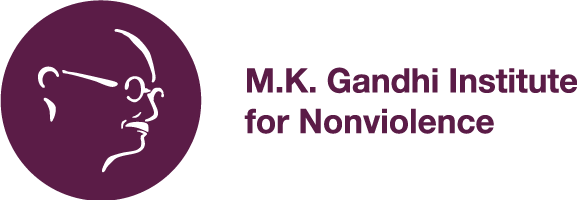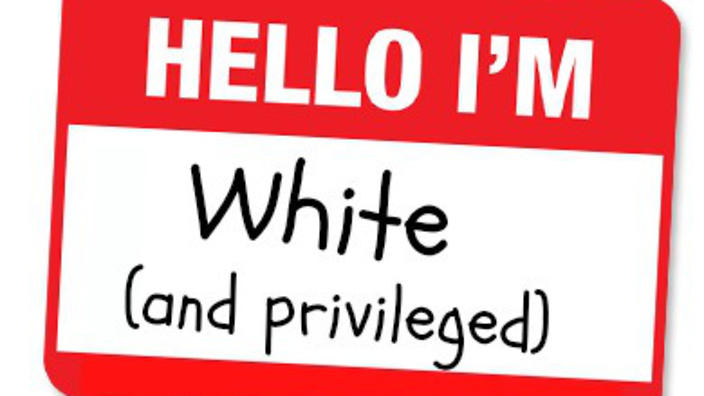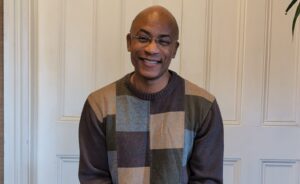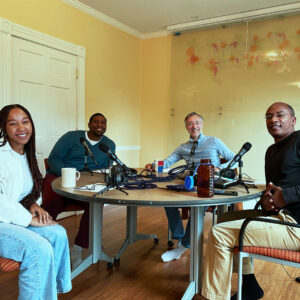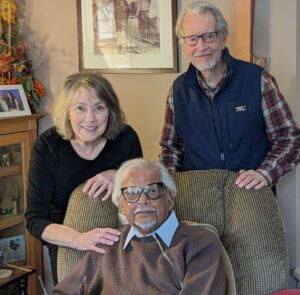“When did you first become aware of race?” the facilitator asked. My mind was blank. When was it? How old was I? Why don’t I remember? Growing up white in this country and being raised in nearly-completely-white suburbia, my story of lack of awareness around race is not unique.
Not having to think about race and believing I was “normal” have been results of my white privilege from the earliest parts of my life. I did not need to question if I was welcome at the majority white church my family attended when I was young. My private school experience only separated me further from spending any significant time in racially diverse groups while growing up. The few students of color who attended my school were exotic to me—from far off places such as Egypt and Africa (yes, the whole continent was sufficient to reference, according to white supremacy). No one talked about race or racism to me when I was young. I was insulated. I was systemically protected. I belonged, so why question it?
I was confronted with all of this anew when I attended Metro Justice’s Racial Justice workshop[1] on October 17th. I was reminded that I have a choice whether or not I’ll do the work of examining how race and racism have shaped my life; my choice exists because of my white privilege. I could remain comfortable and rationalize away why there weren’t families of color in my neighborhood growing up or more students of color at my school. Or I can choose the journey of educating myself: learning about the exclusion laws which prevented people of color from moving into the state of Oregon (in the 1840s), understanding the connection between race and poverty which no doubt was part of the reason more children of color didn’t attend my school.
While at the workshop, hearing about the legacy of slavery and the multiple structural barriers which followed (Jim Crow laws, immigration quotas, redlining, predatory lending, to name a few), I felt familiar guilt creep up. How do we as white people deal with these feelings of guilt? It’s painful to look at this history of oppression. How do we not become silent and frozen in shame? The Metro Justice facilitators spoke about understanding racism as something white people inherited from our parents and grandparents which does not fit us anymore. We can understand how everyone starts to acquire biases from the moment we are born: from what was seen and said and what was unseen and unsaid. As a white person, I internalized the idea that black people are either dangerous or exotic. I internalized the idea that Asians are smart and Latinos are drug-dealers. Did you internalize similar stereotypes or other ones? Whatever they are, these ideas live unquestioned within us as the platform upon which our brains build mental associations. Our unconscious is running the show, whether we admit it or not.
If it’s unconscious, what can we do about it? We can start right now by challenging biases whenever they arise. Just a few weeks ago I had an opportunity to do this: I went to go see a new doctor, and I was surprised when a black woman walked in to treat me. I felt shame about my surprise; I recognized it to be connected to a hidden bias that a black doctor could not be as qualified to take care of me as a white doctor. I felt appalled uncovering this, and yet I also saw the opportunity to challenge this old story I internalized at some point in time I do not remember. Instead of spending time trying to feel better about myself and convince myself or others that I’m not racist, I want to use my energy to notice when these biases arise and challenge them. That’s what we all can do, starting in this moment.
What else can we do for racial justice as white people? First, we need to educate ourselves, rather than falling into the common white person trap of asking or expecting a person of color to inform us about their suffering so we can learn. Other things that have supported me in my journey: attending the Conversations on Race[2], reading books by bell hooks[3], checking out the website Black Girl Dangerous. As one participant in the workshop mentioned, let’s use the term white supremacy rather than racism when we speak about these issues. So many times racism is narrowed to only mean personal exceptional acts of hate, whether burning crosses or drawing a swastika. White supremacy recognizes the systemic way people of color in this country have been oppressed and treated unjustly throughout American history.
Doing this work requires that you tolerate discomfort, one of the facilitators said. As white people, we can work with our white fragility by not expecting this examination to be easy. Yet it is our work to do. I didn’t put the system of slavery into place, and yet my ancestors benefited from it. I have the opportunity to step into my power to change the course of history for white people by working for racial equity and justice. How can I be a part of a generation that changes our trajectory around racism? How can you?
We, as white people, need to acknowledge ourselves as racial beings. The only part of racism I can truly understand is my own experience as a white person in this country. So how can I become more aware each day of how I may glide through the world on the privilege of my whiteness? How often do I not get pulled over, even as I may be speeding or run a yellow light? How often am I in spaces which are majority white and I can relax, knowing these spaces were created with me in mind? Asking these questions is a part of my education around race.
Wherever you are in your journey of understanding race and racism, I invite you to see the daily steps you can take to living toward racial equity. It starts within us. It starts with our implicit biases when we walk past a young black man on the street. We move the world toward racial equity by questioning our biases as we become aware of them. We move the world toward racial equity by examining how our whiteness protects or helps us on a daily basis. We move the world toward racial equity by educating ourselves about historic and systemic white supremacy. We move the world toward racial equity by learning from our mistakes and staying on the journey, even when it may be easier to rationalize and escape uncomfortable feelings. If we are going to transform our systems, we must not neglect the transformation of our own hearts; for our systems are built from that which is within us.
by Shannon Richmond
_____________________________________________________________
[1] I highly recommend Metro Justice’s Racial Justice workshop. Here is more info about Metro Justice: http://www.metrojustice.org/
If you’d like to find out when the date is for the next Racial Justice workshop and register, please contact Pat: girafepm@aol.com
[2] The Conversations on Race are free, facilitated conversations about race and its impact on all of us. Dates and times can be found on the web calendar at gandhiinstitute.org. The next conversations are November 18th at Fairport Public Library and November 23 at Winton Branch Library.
[3] The Gandhi Institute staff is about to read bell hooks’ killing rage: ending racism together. Gather friends, neighbors, or coworkers and start your own book group!
